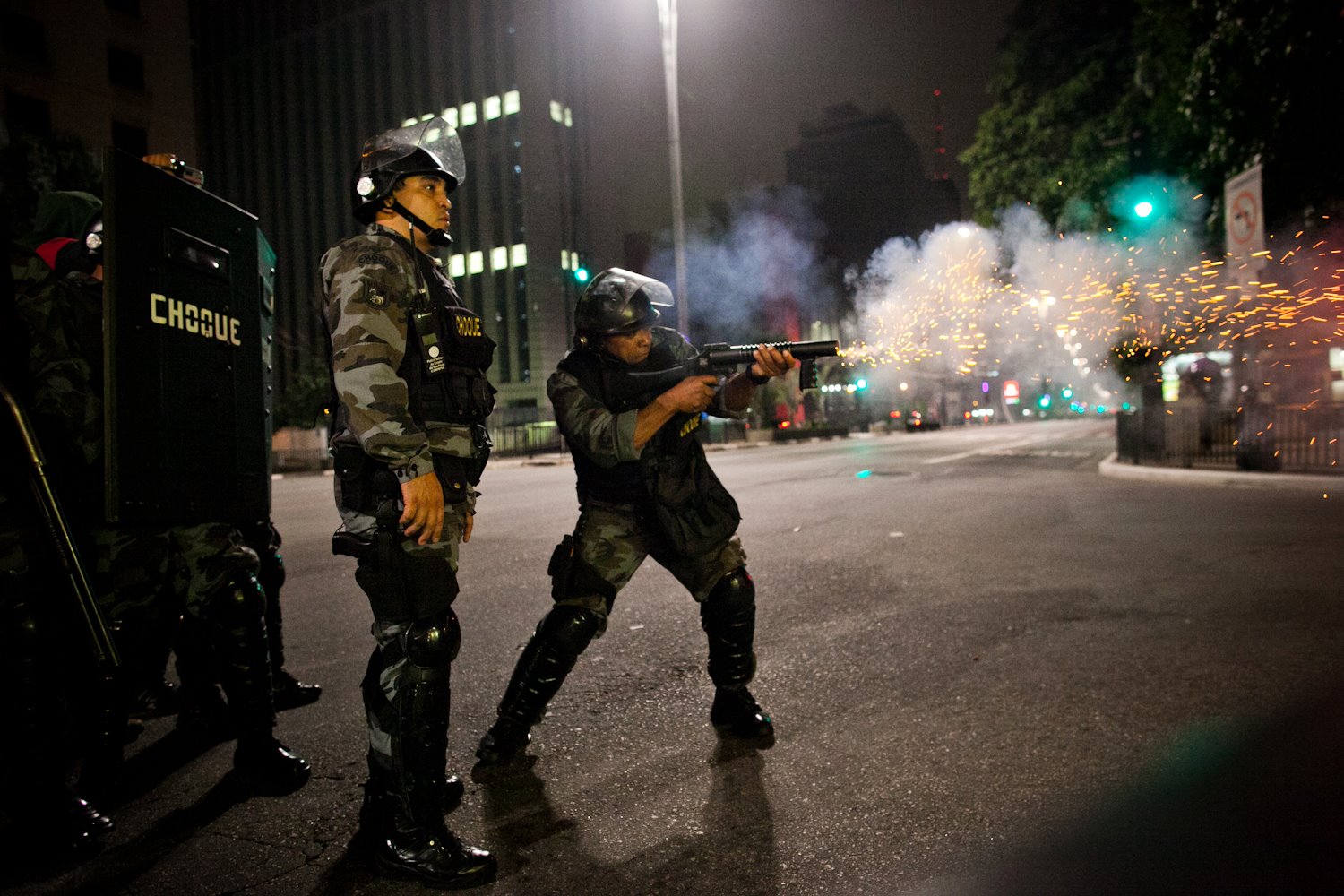NGOs seek justice for photographer who lost sight during protest
The case of the photographer Alex Silveira reaches the Supreme Court twenty years after he was struck by a rubber bullet while covering a protest in São Paulo
 Police officer fires against demonstrators at the June 2013 protests
Police officer fires against demonstrators at the June 2013 protests
Several organizations that work on the protection of human rights, freedom of expression and freedom of the press published an open letter on Tuesday, August 11, asking justices of the Supreme Court to correct the injustices in the case of Alex Silveira. The photographer lost his sight after being struck by a rubber bullet fired by the Military Police while covering a demonstration staged by teachers in São Paulo in May 2000.
In the letter, the civil society organizations stressed the importance of this moment when the Supreme Court will judge the case of Alex Silveira, a photographer struck by a rubber bullet fired by the police while he was covering a demonstration in 2000 on Avenida Paulista, in Sao Paulo. At the event, Silveira was blinded in his left eye and to date he has still not received compensation.
The judgment scheduled for Friday, August 14, is considered significant by the organizations because it will determine whether to hold the State responsible for the photographer’s injury. According to the organizations, the justices could change the prerogative of the police to violently repress protesters and communicators.
Silveira’s case has already been heard by the TJSP (São Paulo State Court), which awarded him compensation. But the ruling was overturned on appeal, on the grounds that the blame fell squarely on the photographer since he had “remained at the scene of the commotion”.
On May 18, 2000, while covering a demonstration, Silveira was struck by a rubber bullet in the eye by the São Paulo Military Police. According to the organizations that signed the letter, although more than 20 years have passed, the resumption of the case by the Supreme Court could be a way to prevent agents of the State acting with impunity.


